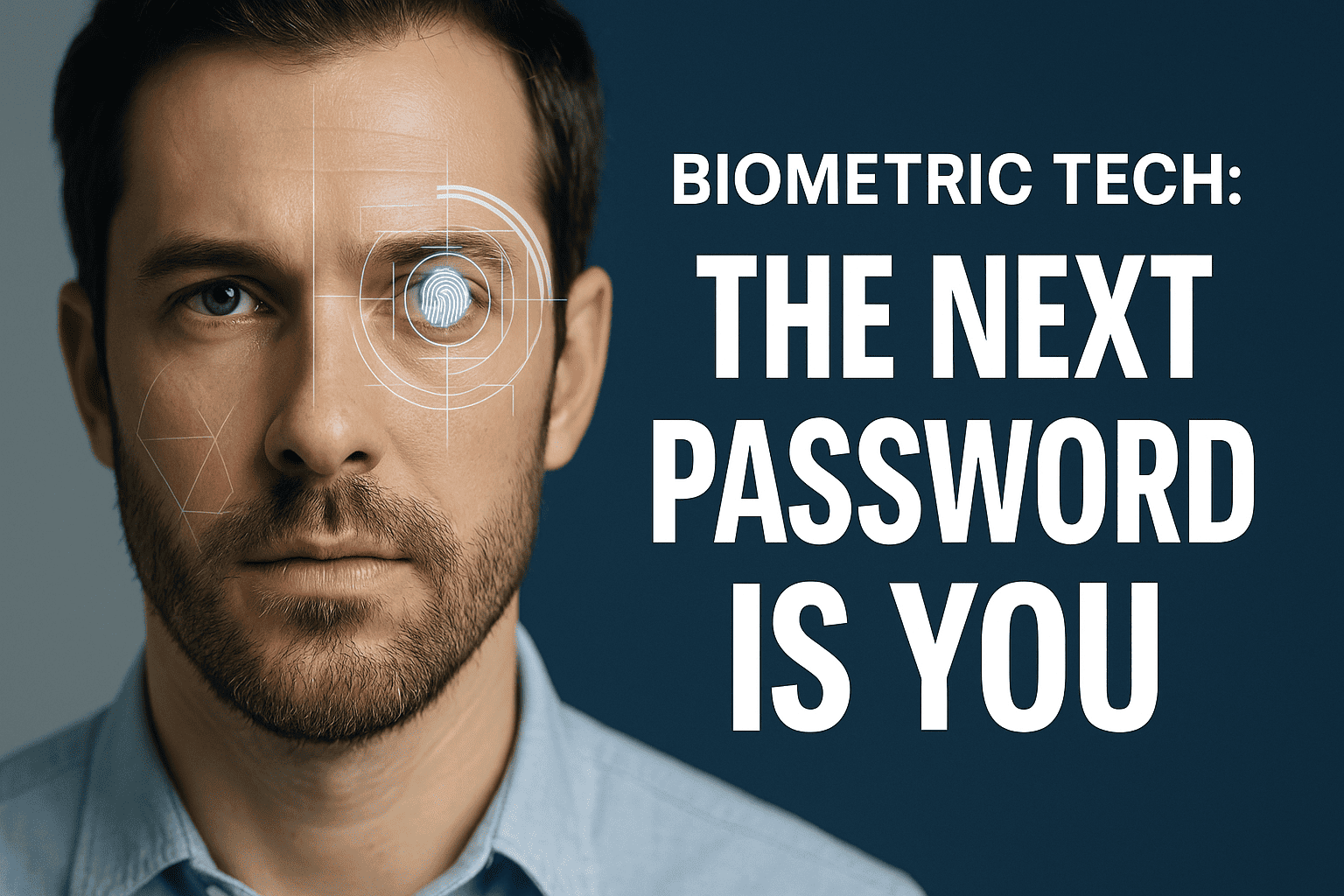Think of a world where you don’t have dozens of complicated passwords to remember. You don’t have to worry about “forgot password” emails. You don’t have to do any typing. Just you — your fingerprint, your face, your voice — getting you into everything.
Welcome to the biometric future where you are the key.
Why Passwords Are Fading Away
Passwords are weak. Most people reuse passwords. Many people have passwords as simple as “123456” and “password.” Hackers love this. Even if you have strong passwords, you are still at risk from phishing and data breach attacks.
Biometric authentication deals with this by making you the password. Your unique features cannot be easily copied, you don’t forget them, and they are always with you.
Types of Biometric Technology You Already Use
Biometric technology may seem like something from the future, yet it is already becoming integrated into your life. Unlocking your phone using your fingerprint or face? That is biometrics. Using a voice assistant like Alexa or Siri? That is biometric voice recognition.
Banks, airports, and even laptops are using this biometric tech to make your life easier and safer.
Top Benefits of Biometric Security
Efficient – Get in without typing anything.
Security – Your biometric data and digital profiles are much harder to steal or guess.
Convenience – You don’t have to remember anything, or carry anything, just your physical form.
Personalization – Access to resources tailored specifically for YOU.
How It Works Behind the Scenes
Biometric systems scan a physical or behavioral trait; this could be your fingerprint, iris, voice, or face. This information is translated into a digital code, secured, and stored (usually locally, not in a cloud solution).
Upon authentication, the system compares your current input to the stored code. If it matches, access is granted. If not, access is denied.
Overall, it is quick, intelligent, and strikingly accurate—especially with AI helping improve the match
The Future Is More Than Fingerprints
At the moment, the two most well-known forms of biometric are facial recognition and fingerprints. But it doesn’t stop there. We will find other methods that are even more advanced, like:
Iris scans: even more secure than facial scans.
Voice biometrics: your voiceprint is as unique to you as your fingerprint.
Behavioral biometrics: how you walk, type or even how you hold your phone can identify you.
Can you imagine logging into your email just by entering a room, or unlocking your bank app with your voice? It’s all on the way- and faster than you realize.
Should You Be Worried About Privacy?
iometric data is powerful and should be protected. If the thought of businesses or government acquiring your biometric data makes you uneasy, you are not alone. New regulations and laws are being developed all over the world to protect biometric data.
Also, most modern systems store your data locally on your device instead of communicating the data to the cloud, which reduces the risk of mass data leaks.
As always, consider the services that are upfront and transparent about how they collect, use and store your data.
Final Thoughts: You Are the Key
Biometric technology is revolutionizing how we protect our digital lives. It’s personal. It’s secure. And it’s only going to get smarter.
In the near future, passwords may become history. The next time you unlock a phone with your face or pay using your fingerprint, remember:
You’re not just using technology — you are the technology.
Read also:
Explore more tech updates here → Click here


3 thoughts on “New Biometric Tech: The Next Password Is You”